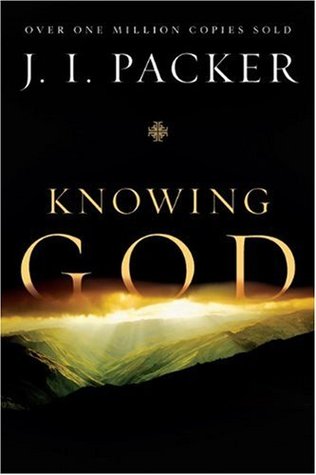More on this book
Community
Kindle Notes & Highlights
He judges “the secrets of men,” not just their public facade. Not for nothing does Paul say, “We must all be made manifest before the judgment seat of Christ” (2
But God is his own executioner.
How do free forgiveness and justification by faith square with judgment according to works?
First, the gift of justification certainly shields believers from being condemned and banished from God’s presence as sinners. This
But, second, the gift of justification does not at all shield believers from being assessed as Christians, and from forfeiting good which others will enjoy if it turns out that as Christians they have been slack, mischievous and destructive.
Reward and loss signify an enriched or impoverished relationship with God, though
we know ourselves at all, we know we are not fit to face him. What then are we to do? The New Testament answer is: Call on the coming judge to be your present Savior.
“A study of the concordance will show that there are more references in Scripture to the anger, fury, and wrath of God, than there are to His love and tenderness” (A. W. Pink, The Attributes of God, p. 75).
Nor does the Bible make known to us the wrath of God merely by general statements like those quoted. Bible history, as we saw in our last chapter, loudly proclaims the severity as well as the goodness of God. In the same sense that Pilgrim’s Progress might be called a book about roads to hell, the Bible could be called the book of God’s wrath, for it is full of portrayals of divine retribution, from the cursing and banishment of Adam and Eve in Genesis 3 to the overthrow of Babylon and the great assizes of Revelation 17—18 and 20.
To some, for instance, wrath suggests a loss of self-control, an outburst of “seeing red” which is partly if not wholly irrational.
But when Scripture speaks of God anthropomorphically, it does not imply that the limitations and imperfections which belong to the personal characteristics of us sinful creatures belong also to the corresponding qualities in our holy Creator; rather, it takes for granted that they do not.
It is, instead, a right and necessary reaction to objective moral evil.
Then to others the thought of God’s wrath suggests cruelty. They think, perhaps, of what they have been told about Jonathan Edwards’s famous gospel
God will see, says Edwards in the sermon already referred to, “that you shall not suffer beyond what strict justice requires”—but it is precisely “what strict justice requires,” he insists, that will be so grievous for those who die in unbelief.
Before hell is an experience inflicted by God, it is a state for which a person himself opts by retreating from the light which God shines in his heart to lead him to himself.
Nobody stands under the wrath of God except those who have chosen to do so.
God’s readiness to respect human choice to this extent may appear disconcerting and even terrifying, but it is plain that his attitude here is supremely just—and is poles apart from the wanton and irresponsible inflicting of pain which is what we mean by cruelty.
God is hereby doing is no more than to ratify and confirm judgments which those whom he “visits” have already passed on themselves by the course they have chosen to follow.
This appears in the story of God’s first act of wrath toward humanity, in Genesis 3, where we learn that Adam had already chosen to hide from God and keep clear of his presence, before ever God drove him from the Garden. And the same principle applies throughout the Bible.
Between us sinners and the thunderclouds of divine wrath stands the cross of the Lord Jesus.
Jesus “delivers us from the wrath to come” (1 Thess 1:10 RSV).
No doubt there have been some who have preached of wrath and damnation with tearless eyes and no pain in their hearts.
Our readiness or our reluctancy to meditate upon the wrath of God becomes a sure test of how our hearts really stand affected towards Him. (The Attributes of God, p. 77)
Both appear alongside each other in the economy of grace. Both must be acknowledged together if God is to be truly known.
But on the basis of the Santa Claus theology, sins create no problem, and atonement becomes needless; God’s active favor extends no less to those who disregard his commands than to those who keep them. The idea that God’s attitude to me is affected by whether or not I do what he says has no place in the thought of the man on the street, and any attempt to show the need for fear in God’s presence, for trembling at his word, gets written off as impossibly old-fashioned—“Victorian,” “Puritan” and “sub-Christian.”
The truth is that these ideas must be answered in terms not of justification but of adoption—a reality which the Puritans never highlighted quite enough.


